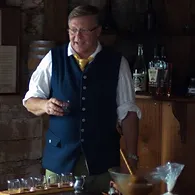Imagine if learning to drive was like learning to legally distill whiskey. “No son, I cannot teach you to drive the car until you purchase an automobile! Then you must obtain an insurance policy and pay for the learner’s permit license”. “Until you own a car, it’s not legal to teach you to drive!” In effect, that is the analogous process for learning to legally distill. You need to buy or rent a building, meet local codes, obtain a state license, apply for a federal license, purchase stills and equipment, refine your recipes and get the labels approved … all before you can get behind the wheel for a learner’s permit to distill whiskey.

You can’t just fire up Dad’s still like you would his car while you are learning. To my knowledge, only one country in the world allows home distilling: New Zealand! To say alcohol is a highly regulated industry in the US is an understatement. To say it is highly profitable … especially for the government, is merely accurate. The federal government tried taxing distilled spirits to pay for the Revolutionary War in 1791. By 1794, the Whiskey Rebellion occurred as farmer/distillers refused to pay the tax. After sending a 13,000-man Army to quell the unrest, the federal government rescinded the taxes. The onerous return of taxation on distilled spirits reappeared during the Civil War. This was followed by the “Noble Experiment” of Prohibition which lasted from 1920 until 1933 and was arguably abandoned because the government was missing out on tax revenues that were mostly going to organized crime. Today, the government takes in a lot of money as the spirits industry is one of the most highly regulated and taxed.
Now imagine trying to build a distillery that operates using 18th century equipment and recipes. They do not teach this at Moonshine University! Long ago column stills replaced the iconic works of artistry and craftsmanship that was the copper pot still. Modern techniques designed mostly for efficiency have replaced the old ways. Steam generated from propane or electric have replaced the smell of wood fired boilers cooking a carefully crafted mash bill. The 18th century distiller determined his heads, hearts and tails cuts from smell, taste, feel and experience. I understand … and appreciate … consistency, efficiency and economy of scale. But it just doesn’t seem as romantic as the farmer/distiller using his hand to track the progression of steam down the lyne arm. He knows when the magic is about to happen in the worm tube and soon distillate begins to flow. The spirit that we love has been coaxed from grain, vaporized to a gas and condensed back to a new liquid retaining only the tasty components … and alcohol!


Fortunately, the learner’s permit distillers of the Eichelberger Distillery at Dills Tavern were recently invited on a “ride-along” at one of the only places in the country that distills the old way: George Washington’s Distillery at Mount Vernon. It was an invaluable experience sheparded by Steve Bashore, head distiller and his staff at Mount Vernon, assisted by Marc Meltonville, a historic foodways expert, professor, author, and head of historic distilling for the Tudor Kitchens at Hampton Court Palace in England. Marc was in town assisting the staff at Mt Vernon as they conducting their winter distilling run.
The initial impression was work… a lot of work … A huge pile of split wood was consumed. Boiling water was bucketed into the fermenters. Mash, previously fermented and ready to run was bucketed into the stills. Heads from previous runs were added and the “girls” (each still named after a lady) were fired. The fires were built to a consistent flame and then fed and monitored for even heat. Steam filled the stills, traveled down the lyne arms and in a few hours, anticipation over, distillate flowed. It was captured, and ready to be finished on a final spirits or doubling run. It was a great day.
The build out of the Eichelberger Distillery is progressing. Each day the chimney grows taller. Soon, field stone will cover the block walls, mahogany windows and doors will hang from iron hinges to cover the openings and a cedar shakes roof will keep out the rain.

Soon, the learner’s permit phase will be completed. With keys in hand, fully licensed distillers, will greet you at the red door. Enter, and you’ll learn unique aspects of 18th century Pennsylvania distilling and the important role it played in the agricultural heritage and economic development of Dillsburg, the South Mountain region and South-Central Pennsylvania. Not only will you see and hear about early distilled whiskies and brandies, but you will be able to taste the spirits as made and enjoyed by our ancestors who built this great country.




